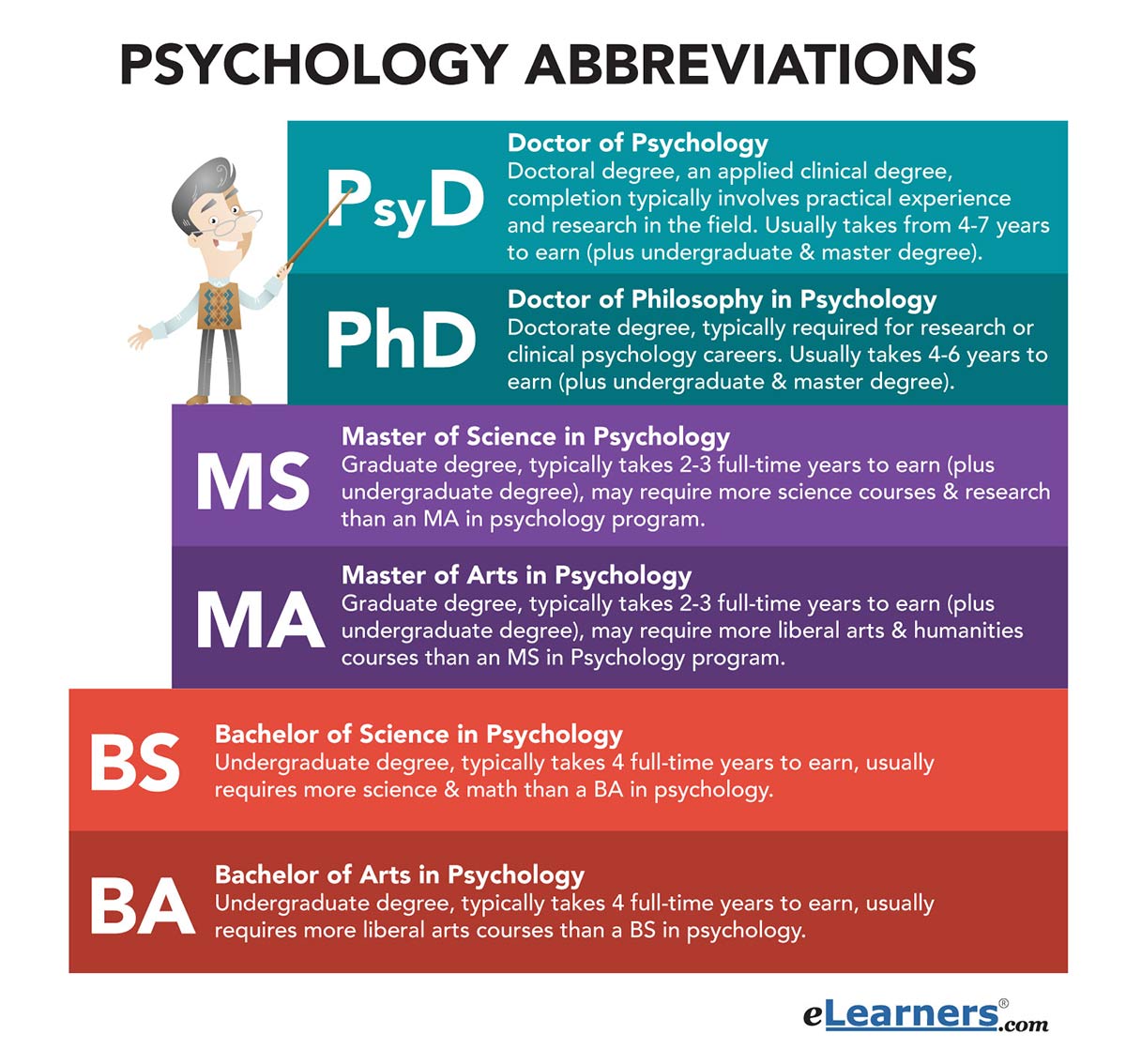Let’s just admit it—psychology abbreviations can be confusing! You may end up searching for the wrong psychology degree, or not know which psychology program you want to apply to—just because you aren’t sure which abbreviation means what.

First of all, the reason there are so many different degrees and corresponding abbreviations is that the field of psychology is very varied and professionals in psychology serve different purposes in the world. Some psychologists work in hospitals, some work in schools. Some psychologists earn their PhD in Psychology (which is the abbreviation for doctor of psychology) and open their own private practice that helps individuals navigate life. Some people earn their BS or BA (bachelor of science in psychology and bachelor of arts in psychology abbreviations) in psychology and go on to pursue careers advising company leaders or teaching.
We’ve compiled a list of the important psychology abbreviations that have to do with degrees to clear up any confusion you have while researching how to pursue a psychology degree.
Psychology Abbreviations
BS – Abbreviation for Bachelor of Science in Psychology
An undergraduate degree that typically takes four years of full-time enrollment to complete. Usually requires more science and math related courses than a BA in psychology.
BA – Abbreviation for Bachelor of Arts in Psychology
An undergraduate degree that typically takes four years of full-time enrollment to complete and usually requires more liberal arts courses than a BS in psychology degree.
MS – Abbreviation for Master of Science in Psychology degree
Graduate level degree that typically takes two to three years to earn (in addition to the years spent earning undergraduate degree). May require more science courses and research than an MA in psychology program. Student does not need to have earned a bachelors degree in psychology in order to qualify for a masters degree in psychology.
MA – Abbreviation for Master of Arts in Psychology degree
Graduate level degree that typically takes two to three years to earn (in addition to the years spent earning undergraduate degree). May require more liberal arts and humanities courses than an MS in Psychology program. Student does not need to have earned a bachelors degree in psychology in order to qualify for a masters degree in psychology.
PsyD – Abbreviation for Doctor of Psychology
This doctoral level degree is an applied clinical degree and earning it typically involves practical experience and research in the field, rather than developing a dissertation (which is typically required to earn a doctorate level degree). Usually takes from four to seven years to complete (in addition to the years spent earning undergraduate and masters degree).
PhD – Abbreviation for Doctor of Philosophy in Psychology
A doctorate level degree that is typically required for research or clinical psychology positions. Usually takes between four and six years to complete (in addition to the years spent earning undergraduate and masters degree).
Here are some other terms you may find when researching psychology degrees or related careers:
MSW – Abbreviation for Masters in Social Work degree
LCSW – Licensed Clinical Social Worker, meaning the individual has passed a test after earning a masters degree in social work
LPC – Licensed Professional Counselor
MFCC – Marriage, Family, and Career Counselor
CSAC – Certified Substance Abuse Counselor
CAC – Certified Alcoholism Counselor
ABPP – Abbreviation for American Board of Professional Psychology (psychologists may also work to become board certified, similarly to doctors)
AMA - American Medical Association
APA - American Psychiatric Association
APA - American Psychological Association
